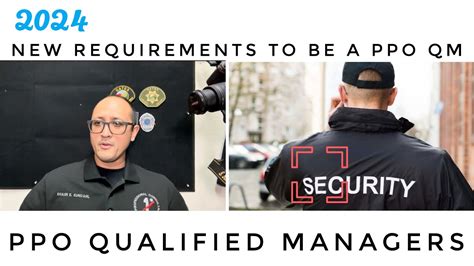The private patrol industry has experienced significant growth in recent years, driven by increasing demand for security services from businesses, individuals, and governments. As a result, many entrepreneurs and security professionals are looking to start their own private patrol businesses. However, obtaining the necessary licenses and approvals can be a complex and challenging process. In this article, we will outline the 5 essential steps to private patrol operator application success.
Understanding the Private Patrol Industry
Before we dive into the application process, it's essential to understand the private patrol industry and the services it provides. Private patrol operators offer a range of security services, including:
- Patrol services: Providing security personnel to patrol client premises, such as office buildings, residential areas, and industrial sites.
- Alarm response: Responding to alarm activations at client premises.
- Escort services: Providing security escorts for individuals or groups.
- Surveillance services: Conducting surveillance operations for clients.
Private patrol operators play a critical role in maintaining public safety and security, and their services are in high demand.
Step 1: Meet the Basic Requirements
To apply for a private patrol operator license, you must meet the basic requirements set by your state or local government. These requirements typically include:
- Age: You must be at least 18 years old.
- Background: You must undergo a background check and have a clean record.
- Experience: You must have relevant security experience, which can vary depending on the state or local government.
- Education: You must have a high school diploma or equivalent.
You must also meet specific requirements for your business, such as obtaining necessary insurance coverage and registering your business with the state.

Step 2: Develop a Comprehensive Business Plan
A comprehensive business plan is essential for private patrol operator application success. Your business plan should include:
- Executive summary: A brief overview of your business, including your mission statement and objectives.
- Market analysis: An analysis of the private patrol industry, including market trends, competitors, and target markets.
- Services: A description of the services you will offer, including patrol services, alarm response, escort services, and surveillance services.
- Marketing and sales: A description of your marketing and sales strategies, including how you will attract clients and promote your services.
- Operations: A description of your business operations, including how you will manage your personnel, equipment, and vehicles.
- Financial projections: Financial projections, including revenue, expenses, and profits.
Your business plan should demonstrate your understanding of the private patrol industry and your ability to operate a successful business.

Step 3: Obtain Necessary Licenses and Permits
To operate a private patrol business, you must obtain the necessary licenses and permits from your state or local government. These licenses and permits may include:
- Private patrol operator license: A license to operate a private patrol business.
- Security guard registration: Registration for your security guards.
- Business license: A license to operate a business in your state or local government.
- Firearms permit: A permit to possess and use firearms, if applicable.
You must ensure that you meet all the requirements for these licenses and permits, including paying the necessary fees and submitting the required documentation.
Step 4: Meet Insurance Requirements
Private patrol operators must meet specific insurance requirements to ensure that they have adequate coverage in case of accidents or incidents. These insurance requirements may include:
- Liability insurance: Insurance to cover damages or injuries caused by your business operations.
- Workers' compensation insurance: Insurance to cover work-related injuries or illnesses.
- Vehicle insurance: Insurance to cover your business vehicles.
You must ensure that you meet all the insurance requirements set by your state or local government and that you have adequate coverage to protect your business.

Step 5: Prepare for the Application Review Process
Once you have completed the above steps, you must prepare for the application review process. This process may involve:
- Submitting your application and supporting documentation.
- Paying the necessary application fees.
- Undergoing a background check and inspection of your business premises.
- Providing additional information or documentation, if required.
You must ensure that you are prepared for the application review process and that you have all the necessary documentation and information to support your application.

In conclusion, obtaining a private patrol operator license requires careful planning and preparation. By following the 5 essential steps outlined above, you can ensure that your application is successful and that you are well on your way to establishing a successful private patrol business.
Gallery of Private Patrol Images






FAQs
What is the private patrol industry?
+The private patrol industry provides security services to businesses, individuals, and governments. These services include patrol services, alarm response, escort services, and surveillance services.
How do I obtain a private patrol operator license?
+To obtain a private patrol operator license, you must meet the basic requirements, develop a comprehensive business plan, obtain necessary licenses and permits, meet insurance requirements, and prepare for the application review process.
What are the insurance requirements for private patrol operators?
+Private patrol operators must meet specific insurance requirements, including liability insurance, workers' compensation insurance, and vehicle insurance.
